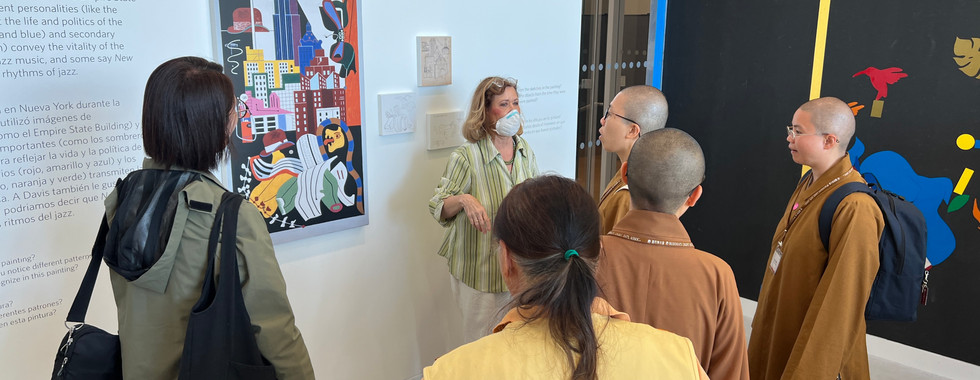2024-07-17 Norton Museum of Art and Monastic College Collaborate to Host Tea Zen Session – Promoting Buddhist Cultural Exchange and Staff Training
- Miami Admin

- Mar 5
- 2 min read
On July 17, 2024, under the recommendation of the monastic community, the students and faculty of Fo Guang Shan Monastic College held a special Tea Zen session for the first time at the Norton Museum of Art in West Palm Beach, Florida. The event, conducted entirely in English, was attended by approximately 40 participants, with the monastic college’s students and faculty serving as tea practitioners.
This event aimed to promote physical and mental well-being and cultural exchange through Tea Zen and Buddhist traditions while also serving as a training program for museum staff. By incorporating Buddhist culture, participants engaged in meditation, tea appreciation, fragrance observation, and mindful tasting, allowing them to experience inner peace and develop meditative focus. Additionally, attendees shared insights from 108 Adages of Life: Venerable Master Hsing Yun’s Teachings, deepening their understanding of Humanistic Buddhism and its practical applications in daily life.
Quincy Brockerhoff, the Adult Education Program Manager at the Norton Museum of Art, shared that staff members from various departments participated in the event and had a wonderful afternoon together. Through Tea Zen, they reflected on how meditation can be integrated into daily life and work. He expressed hopes for future collaborations that blend meditation with art, allowing more people to experience Tea Zen and Buddhist culture.
Karen Mahoney, the museum’s Director of Human Resources, remarked that the session provided valuable insights into Buddhist culture and served as a meaningful cultural exchange opportunity for museum staff. She noted that the experience helped participants relax, focus on the present moment, and engage in self-reflection. She also expressed interest in incorporating Tea Zen sessions into future staff training programs as a way to help employees manage emotions and enhance their well-being.
Venerable Neng Kang, a student at the monastic college, expressed gratitude to the Miami Association, the West Palm Beach subchapter, and the monastic community for co-organizing the Tea Zen event. He emphasized the significance of establishing connections with prominent local museums, sharing Chinese culture and Buddhist meditation practices, and demonstrating how Humanistic Buddhism can be integrated into daily life to help people cultivate happiness.




























Comments